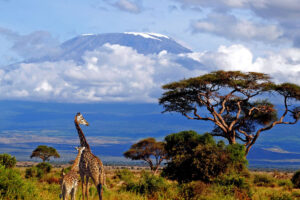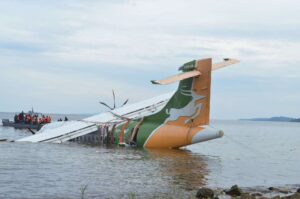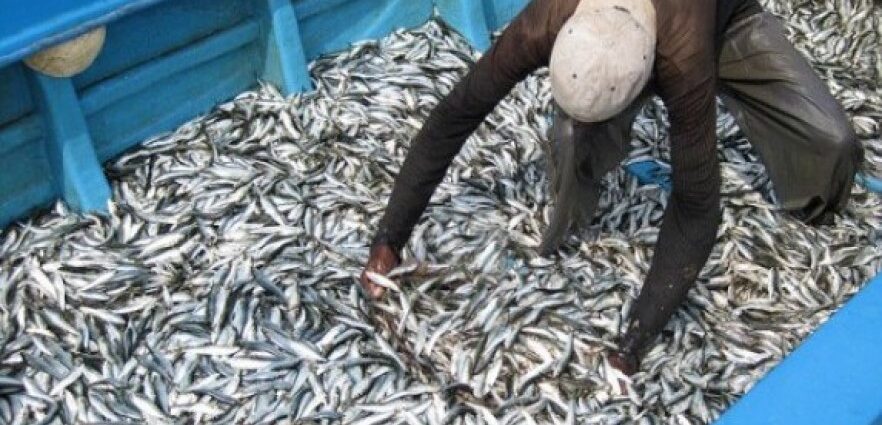TANZANIA Bukoba — THE government has allocated a total of 60bn/- to streamline the fisheries sector in the country, including implementing cage fishing.
Kagera Regional Fisheries Officer, Efrazi Mkama explained that, of the 60bn/-, about 22bn/- was allocated for cage fishing in the Lake Zone regions.
“We thank President Samia Suluhu Hassan for allocating the funds.
Cage fishing is a huge opportunity where people could improve their livelihoods.
I thus appeal to people (males and females) engaging in fisheries activities to form cooperative groups so that they can benefit from the funds,” he said.
Meanwhile, the government has finalised plans to introduce cage fish farming in Kagera region in efforts to increase revenue from fisheries resources.
Permanent Secretary in the Ministry of Livestock and Fisheries Dr Rashid Tamatamah, revealed this recently during a signing of Memorandum of Understanding (MoU), between Kagera regional leaders, the ministry, Tanzania Agricultural Catalytic Trust (TACT) and Nelson Mandela African Institution of Sciences and Technology.
“For quite a long time the contribution from the fisheries sector has remained minimal, contributing to only 1.71 per cent in the nation’s GDP.
President Samia Hassan has directed the Ministry for Livestock Development to takebold steps to increase the GDP,” he said.
Elaborating, he said Tanzania is very rich with many lakes including Lake Victoria, Lake Tanganyika and Lake Nyasa and abundant satellite lakes and rivers.
Dr Tamatamah said that Kagera region was chosen as a pilot area where cage fish farming would be implemented before the program was expanded to other areas.
He explained that the Nelson Mandela African Institution of Sciences and Technology will spearhead research on aquatic creatures and would soon open a campus in Bukoba Municipal Council.
“We are delighted that the MoU for the implementation of the project has been finalised. Every one of us should play his/her role to increase revenue from fisheries resources. We have the ability and capacity of performing the task,” he said.
He also revealed that the Centre for Acquaculture Technology had already been completed at Lubambangwe Village, in Chato District, Geita region, adding that the project cost about 3.07bn /- until its completion.
Get the latest in African news delivered straight to your inbox
Tanzania Agricultural Catalytic Trust (TACT) Chief Executive Officee Dr John Kyaruzi commended authorities in Kagera region for allocating enough land at Kyamalange Village in Bukoba Rural’s Rubafu Ward where cage fish farming activities would be conducted on pilot basis with TACT funding the programme.
He did not, however, reveal the amount of money to be injected in the project.
The Lake Victoria fishery contributes immensely to the socio-economic development of the riparian states.
The East African Community (EAC), has designated the lake basin as an ‘economic growth zone’, with the potential to develop into a major economic region.
The fisheries are vital in creating employment opportunities, mostly rural-based, thereby helping to reduce rural-urban migration.
Fish is also a rich source of animal protein for human consumption and provides raw material (fish-meal) for processing animal feeds.
The fish industry contributes to GDP and has continued to be an important source of foreign exchange earned from fish exports.
Besides, the fish industry contributes to the national and local government revenues through levying of various taxes, levies and license fees.
Source: allafrica.com
Share this news
This Year’s Most Read News Stories

Tanzania can benefit from strategic investment in national pride
Travelling to a few places so far, I discovered that the Tanzanian passport can change the way one is treated at airports and international bordersContinue Reading

‘Pilot error’ caused Precision Air crash
Reports says prevailing poor weather led to the pilots failing to heed warning signals.Continue Reading

Tanzanian insurance firms upbeat after first quarter business growth
Total gross written premiums for the insurance industry have increased by 13.68 percent in the first quarter of 2024, with small and medium-sized companies showing higher growthContinue Reading











